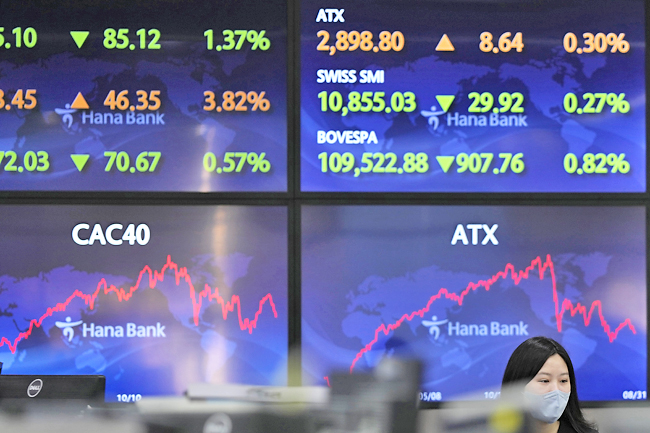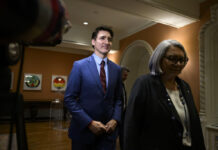Yuri Kageyama
TOKYO (AP) – Asian shares were lower yesterday, tracking the broad slide on Wall Street, as investors braced for higher interest rates and inflation worries for some time.
Benchmarks fell in Tokyo, Sydney, South Korea and China. Japan’s benchmark Nikkei 225 declined 1.6 per cent in afternoon trading to 27,655.35. Australia’s S&P/ASX 200 dropped 1.8 per cent to 6,861.70. South Korea’s Kospi shed 1.9 per cent to 2,424.60. Hong Kong’s Hang Seng lost 1.7 per cent to 19,622.87, while the Shanghai Composite edged down 0.2 per cent to 3,194.95.
The slide in the Nikkei came despite signs of improvement in the Japanese economy. A study by the Finance Ministry on corporate financial statements for April-June showed a 17.6 per cent improvement from the same period the previous year.
“At some point central banks will discover inflation is remaining high despite their interest rate hikes and they will stop. Unfortunately, for the economy on Main Street, that point is too far off in the distance. It is difficult to see any near-term end in sight for increased caution by consumers and businesses across Europe, China, and the United States (US),” said Chief Economist at ACY Securities Clifford Bennett.
On Wall Street, the S&P 500 fell 31.16 points, 0r 0.8 per cent, to 3,955, extending its losing streak to a fourth day. The index is down 17 per cent so far this year. It ended the month with a 4.2 per cent loss after surging 9.1 per cent in July.
The Nasdaq lost 66.93 points, or 0.6 per cent, to 11,816.20, while the Dow gave up 280.44 points, or 0.9 per cent, to close at 31,510.43. The Russell 2000 index of smaller companies fell 11.48 points, or 0.6 per cent, to 1,844.12.
Technology stocks and big retailers were among the heaviest weights on the market. Only communications stocks eked out a slight gain.

The latest pullback for stocks came as Treasury yields rose broadly. The yield on the 10-year Treasury, which influences interest rates on mortgages and other consumer loans, rose to 3.17 per cent from 3.11 per cent late on Tuesday.
Bond yields have been rising along with expectations for higher interest rates, which the Federal Reserve has been increasing in a bid to squash the highest inflation in decades.
“You have the bond market now taking the Fed seriously,” said Investment Strategist at All Star Charts Willie Delwiche. “And it’s not that stocks can’t overcome that, but so far they haven’t overcome that.”
The last time stocks mounted a big rally was in July and early August, when bond yields came off their highs as expectations for higher rates eased. “If the underlying trend in stocks is lower, then higher bond yields weigh on that,” Delwiche said.
Wall Street is worried that the Fed could hit the brakes too hard on an already slowing economy and veer it into a recession.
Higher interest rates also hurt investment prices, especially for pricier stocks like technology companies.
Traders are now trying to get a better sense of how far and how quickly the Fed’s rate hikes will go. The Fed has already raised interest rates four times this year and is expected to raise short-term rates by another 0.75 percentage points at its September meeting, according to CME Group.
Technology stocks and big retailers were among the heaviest weights on the market on Wednesday. Chipmaker Nvidia fell 2.4 per cent and Best Buy slid 5.6 per cent. Energy companies fell as the price of US crude oil dropped 2.3 per cent. Occidental Petroleum slipped 1.4 per cent.
Those losses kept gains in communications stocks and elsewhere in the market in check.
In energy trading, benchmark US crude fell USD0.60 to USD88.95 a barrel. Brent crude, the international standard, slipped USD2.82, to USD96.49 a barrel.
In currency trading, the US dollar inched up to JPY139.31 from JPY139.04.
The euro cost USD1.0022, down from USD1.0054.



















































